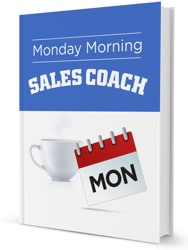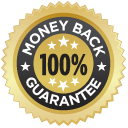The Trust Formula
Selling is a business of trust. Typically the more complex the sale, the greater the financial investment necessary to resolve the problem. With more financial resources on the line, the greater the need to have absolute trust between the buyer and the seller. You simply would not spend large sums of money on an important project with a company or a person in whom you had little trust.
According to Webster, trust is defined as the confident expectation of something. In sales, often the prospect’s “confident expectation” is that the salesperson will use manipulation, may over-promise and under-deliver, won’t take “no” for an answer, etc. Salespeople start out with two strikes against them. Here’s a unique way to look at the components of trust from a selling perspective.

Rapport. This is the personal feeling or connection we have with someone; how much we like or dislike them as a person. Elements could include friendliness, common interests, etc.
Reputation. The external perception that you or your company has in the eyes of others is an important element in determining trust. Elements could include client lists, testimonials, business history, service to the community, etc.
Reliability. The ability to demonstrate to clients that you are reliable and can be trusted to behave in a consistent manner is also very important. Elements might be prompt communication, being on time for meetings, meeting deadlines, etc.
Self-Interest: Obviously, earning high marks in the above areas can build trust to a significant level. However, all your “credits” can be nullified by what your prospect considers your self-interest, your eagerness to make a sale without regard to the prospect’s welfare (and possibly at his expense). Talking too much, pushing too hard for the sale, etc. sends a message that your self-interest is high.
Do the math. If you can earn 10 points each for rapport, reputation, and reliability you have 30 points. If your prospect believes your self-interest is low (as it should be), let’s say a 1, you have a trust factor of 30. However, if your prospect thinks your self-interest is high, let’s say a 10, then your trust factor is 3. You’ve lowered your trust factor by 90%! That’s a fatal mistake and will cost you the sale every time.
The point is that it’s all about the prospect – not about you! Demonstrate in your words and actions that helping him solve his problem is more important than you making a sale. Give him the right to say “no.” Ask lots of questions. Do a good diagnosis before you prescribe a solution. Ditch the old sales pitch and watch your sales skyrocket!
Self-Study Assignment: List 2-3 additional elements for each of the four factors that make up the trust formula. Pay special attention to the self-interest area and identify anything that you personally are doing that would cause your prospect to conclude that you are more interested in helping yourself than helping him. Then make the appropriate adjustments to your selling approach.


